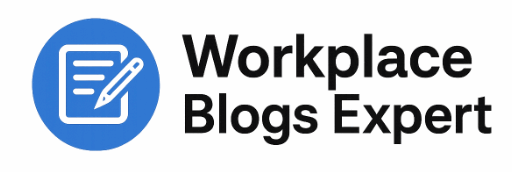How to Be a Good Interviewer: 10 Essential Tips

Being a good interviewer goes far beyond simply asking questions. It is about creating an environment where candidates feel comfortable, understanding the skills and potential they bring, and making informed decisions that benefit your organization. Interviews can happen in person, over the phone, or via online platforms. Mastering the art of interviewing requires preparation, empathy, and strategy. This guide covers ten essential tips for becoming an effective interviewer and improving your hiring outcomes.
1. Prepare Thoroughly Before the Interview
Preparation is the foundation of a successful interview. Start by reviewing the candidate’s resume, cover letter, and any prior interactions. Make notes of areas that need clarification, such as gaps in employment or specific project experiences. Think about questions that will reveal both technical expertise and soft skills.
Using a Digital Workplace Platform can streamline this process. These platforms allow you to store candidate profiles, track interview notes, and schedule sessions efficiently. With everything organized in one place, you can approach each interview with confidence and clarity.
2. Create a Comfortable Environment
An interview can be intimidating, especially for candidates in remote or online settings. Begin by greeting them warmly and explaining the structure of the interview. This helps reduce anxiety and sets the stage for a productive conversation.
If you are conducting a 1 on 1 call, ensure that both parties are free from distractions, and test the connection beforehand. A calm and focused environment encourages honest answers and helps you gain deeper insights into their abilities.
3. Ask Clear and Relevant Questions
The way you frame your questions can significantly impact the information you gather. Avoid vague or overly generic questions. Instead, focus on queries that are specific to the role and the candidate’s experience. Behavioral questions, such as asking how someone handled a past challenge, are particularly effective for assessing problem-solving skills.
4. Listen Actively and Take Notes
Listening actively is one of the most overlooked skills in interviewing. Pay attention not only to what the candidate says but also to how they say it. Tone, enthusiasm, and clarity often reveal as much as the words themselves.
Using web meeting software can help manage remote interviews efficiently. Many platforms allow you to record sessions, share screens, and take structured notes. This ensures that nothing important is missed and provides a reference point when evaluating candidates later.
5. Balance Video Calls vs Voice Calls
Choosing between video and voice calls depends on the type of interview and the information you need. Video Calls vs Voice Calls each have unique advantages. Video calls allow you to observe body language and non-verbal cues, while voice calls can make candidates feel more relaxed.
For initial screenings, voice calls may suffice, but for deeper discussions or final rounds, video calls often offer a richer view of the candidate. Balancing these approaches ensures fairness and flexibility.
6. Maintain Consistency Across Interviews
Consistency is essential for fair evaluations. Ask similar questions to all candidates applying for the same role, and use standardized criteria for assessment. This approach eliminates bias and ensures that your decisions are based on merit rather than subjective impressions.
Structured interviews also allow you to compare candidates more effectively. When combined with a task management tool, you can quantify evaluations and make data-driven hiring decisions.
7. Manage Time Effectively
Interviews need to be efficient for both the interviewer and the candidate. Allocate enough time for meaningful discussion without letting the process drag on unnecessarily. Time management shows respect for candidates’ schedules and reflects positively on your organization.
8. Provide Feedback When Possible
Offering constructive feedback leaves a positive impression on candidates and helps them grow professionally. Even brief comments about strengths or areas for improvement can be valuable. Feedback can be communicated through follow-ups or additional online meetings, depending on the stage of the hiring process.
9. Utilize Technology for Practice and Improvement
Technology can help you refine your interviewing skills. An AI communication coach can provide real-time guidance on your tone, pacing, and question clarity. Similarly, a mock interview practice tool lets you simulate interviews with virtual candidates, helping you identify areas for improvement before actual interviews.
These tools not only build confidence but also ensure that every interaction with candidates is professional, engaging, and effective.
10. Close the Interview Professionally
How you end an interview is just as important as how you start. Summarize key discussion points, outline next steps, and thank the candidate for their time and effort. Closing professionally reinforces your organization’s values and ensures a positive candidate experience.
Conclusion
Becoming a skilled interviewer requires preparation, empathy, active listening, and professional conduct. Leveraging tools like a Digital Workplace Platform, structured 1 on 1 calls, reliable web meeting software, task management tools, an AI communication coach, and a mock interview practice tool can make your interviews smoother and more effective. Balancing video calls vs voice calls and conducting clear online meetings ensures that every candidate interaction is fair, meaningful, and professional. Following these ten essential tips will help you attract top talent and make informed hiring decisions that strengthen your organization.
